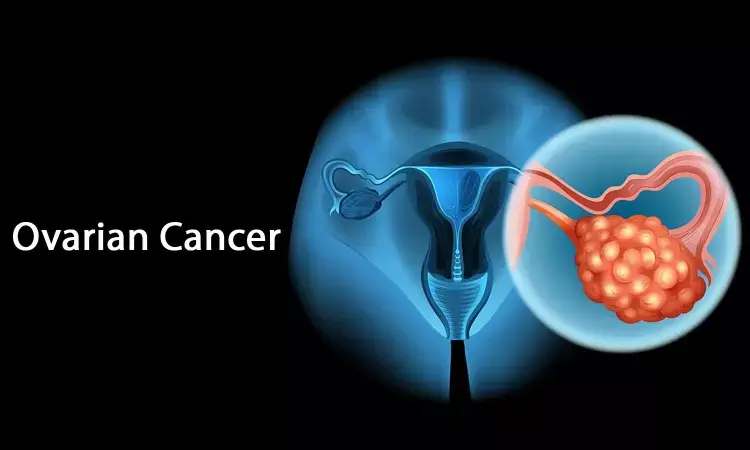- Home
- Medical news & Guidelines
- Anesthesiology
- Cardiology and CTVS
- Critical Care
- Dentistry
- Dermatology
- Diabetes and Endocrinology
- ENT
- Gastroenterology
- Medicine
- Nephrology
- Neurology
- Obstretics-Gynaecology
- Oncology
- Ophthalmology
- Orthopaedics
- Pediatrics-Neonatology
- Psychiatry
- Pulmonology
- Radiology
- Surgery
- Urology
- Laboratory Medicine
- Diet
- Nursing
- Paramedical
- Physiotherapy
- Health news
- Fact Check
- Bone Health Fact Check
- Brain Health Fact Check
- Cancer Related Fact Check
- Child Care Fact Check
- Dental and oral health fact check
- Diabetes and metabolic health fact check
- Diet and Nutrition Fact Check
- Eye and ENT Care Fact Check
- Fitness fact check
- Gut health fact check
- Heart health fact check
- Kidney health fact check
- Medical education fact check
- Men's health fact check
- Respiratory fact check
- Skin and hair care fact check
- Vaccine and Immunization fact check
- Women's health fact check
- AYUSH
- State News
- Andaman and Nicobar Islands
- Andhra Pradesh
- Arunachal Pradesh
- Assam
- Bihar
- Chandigarh
- Chattisgarh
- Dadra and Nagar Haveli
- Daman and Diu
- Delhi
- Goa
- Gujarat
- Haryana
- Himachal Pradesh
- Jammu & Kashmir
- Jharkhand
- Karnataka
- Kerala
- Ladakh
- Lakshadweep
- Madhya Pradesh
- Maharashtra
- Manipur
- Meghalaya
- Mizoram
- Nagaland
- Odisha
- Puducherry
- Punjab
- Rajasthan
- Sikkim
- Tamil Nadu
- Telangana
- Tripura
- Uttar Pradesh
- Uttrakhand
- West Bengal
- Medical Education
- Industry
Olaparib benefits relapsed ovarian cancer patients, with BRCA1/2 mutation: Lancet

Recent research , put forth in The Lancet Oncology, has highlighted Olaparib to be effective in patients with relapsed ovarian cancer and BRCA1/2 mutation .
Olaparib, a poly (ADP-ribose) polymerase (PARP) inhibitor, has previously been shown to extend progression-free survival versus placebo when given to patients with relapsed high-grade serous or endometrioid ovarian cancer who were platinum sensitive and who had a BRCA1 or BRCA2 (BRCA1/2) mutation, as part of the SOLO2/ENGOT-Ov21 trial. The aim of the recent final analysis was to investigate the effect of olaparib on overall survival.
Regarding the study design, this double-blind, randomised, placebo-controlled, phase 3 trial was done across 123 medical centres in 16 countries. Eligible patients were aged 18 years or older, had an Eastern Cooperative Oncology Group performance status at baseline of 0–1, had histologically confirmed, relapsed, high-grade serous or high-grade endometrioid ovarian cancer, including primary peritoneal or fallopian tube cancer, and had received two or more previous platinum regimens. Patients were randomly assigned (2:1) to receive olaparib tablets (300 mg in two 150 mg tablets twice daily) or matching placebo tablets using an interactive web or voice-response system. Stratification was by response to previous chemotherapy and length of platinum-free interval. Treatment assignment was masked to patients, treatment providers, and data assessors.
The primary endpoint of progression-free survival has been reported previously. Overall survival was a key secondary endpoint and was analysed in all patients as randomly allocated. Safety was assessed in all patients who received at least one treatment dose.
Findings revealed some important facts.
- Between Sept 3, 2013 and Nov 21, 2014, 295 patients were enrolled. Patients were randomly assigned to receive either olaparib (n=196 [66%]) or placebo (n=99 [34%]). One patient, randomised in error, did not receive olaparib.
- Median follow-up was 65·7 months (IQR 63·6–69·3) with olaparib and 64·5 months (63·4–68·7) with placebo. Median overall survival was 51·7 months (95% CI 41·5–59·1) with olaparib and 38·8 months (31·4–48·6) with placebo (hazard ratio 0·74 [95% CI 0·54–1·00]; p=0·054), unadjusted for the 38% of patients in the placebo group who received subsequent PARP inhibitor therapy.
- The most common grade 3 or worse treatment-emergent adverse event was anaemia (which occurred in 41 [21%] of 195 patients in the olaparib group and two [2%] of 99 patients in the placebo group). Serious treatment-emergent adverse events were reported in 50 (26%) of 195 patients receiving olaparib and eight (8%) of 99 patients receiving placebo.
- Treatment-emergent adverse events with a fatal outcome occurred in eight (4%) of the 195 patients receiving olaparib, six of which were judged to be treatment-related (attributed to myelodysplastic syndrome [n=3] and acute myeloid leukaemia [n=3]).
"Olaparib provided a median overall survival benefit of 12·9 months compared with placebo in patients with platinum-sensitive, relapsed ovarian cancer and a BRCA1/2 mutation. Although statistical significance was not reached, these findings are arguably clinically meaningful and support the use of maintenance olaparib in these patients."the research team quoted.
For full article follow the link: ://doi.org/10.1016/S1470-2045(21)00073-5
Primary source: The Lancet Oncology
Dr Satabdi Saha (BDS, MDS) is a practicing pediatric dentist with a keen interest in new medical researches and updates. She has completed her BDS from North Bengal Dental College ,Darjeeling. Then she went on to secure an ALL INDIA NEET PG rank and completed her MDS from the first dental college in the country – Dr R. Ahmed Dental College and Hospital. She is currently attached to The Marwari Relief Society Hospital as a consultant along with private practice of 2 years. She has published scientific papers in national and international journals. Her strong passion of sharing knowledge with the medical fraternity has motivated her to be a part of Medical Dialogues.
Dr Kamal Kant Kohli-MBBS, DTCD- a chest specialist with more than 30 years of practice and a flair for writing clinical articles, Dr Kamal Kant Kohli joined Medical Dialogues as a Chief Editor of Medical News. Besides writing articles, as an editor, he proofreads and verifies all the medical content published on Medical Dialogues including those coming from journals, studies,medical conferences,guidelines etc. Email: drkohli@medicaldialogues.in. Contact no. 011-43720751


